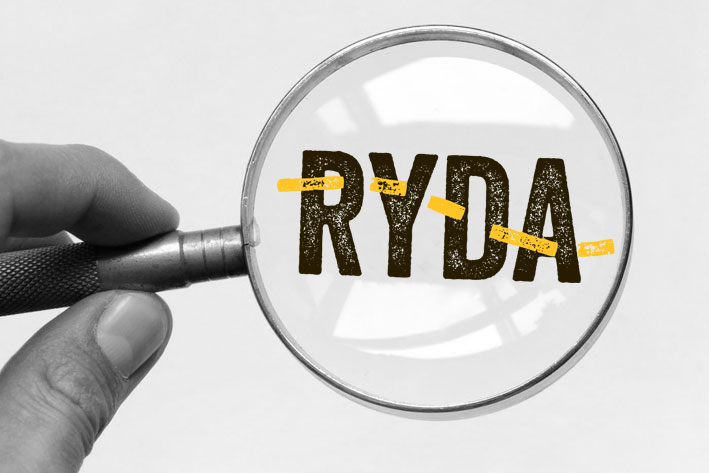Getting behind the wheel of a car as a young driver or being a young passenger with a novice driver is said to be among the most dangerous things that a person will do in their entire life.
What would it take to ensure your students have the tools and understanding to see themselves as active, responsible road citizens and make the necessary choices to keep themselves and others safe on the road?
Your students’ participation in RYDA, which is designed to be interactive, personalised and engaging, is a step in that direction. However long term change will only be realised where educational materials support each other and key messages are repeated over time.
The design, delivery and approach of this education can have a major effect on how deeply it is learned and to what extend mental models can be changed. Included below is some background information to help you include road safety in your school curriculum.
Use the jumplinks below to navigate through the page:

RYDA is designed to align closely with and support messaging in the school curriculum. Here we’ve compiled a list of links between RYDA sessions and government produced curriculum resources. These links are also outlined in the RYDA Teacher’s Companion.
RSE strongly encourages teachers to utilise these resources, integrating RYDA with explorations of related content such as risk-taking, value setting, identity and self-esteem and community and health protection.
Australian Curriculum Links New Zealand Curriculum Links
Curricula in Australia and New Zealand prescribe road safety-related topics in Health/PE (eg. safety, well-being), Science (eg. reaction time, speed and acceleration), Maths (eg. stopping distance, speed measurement), English (eg. research methods, visual language, personal writing, drama) and other subjects.
It also allows teachers to choose contexts in all learning areas, and to support General Capabilities (Australia), and Key Competencies (NZ).

Choosing road safety education programs and tools that support your classroom lessons is a bit like selecting a safe car – you should only choose a program that performs best when bench-marked against what research indicates will produce the best outcome for students.
Most jurisdictions across Australia and New Zealand have published guidelines or principles on what constitutes ‘Best Practice’ for youth road safety education. Here is a summary of the do’s and don’ts of road safety education.

For a quick but comprehensive overview of what RYDA is, how it works and how it can support you in delivering road safety messages to your students, scroll through our Teacher’s Guide to RYDA.

An article by Mary Chamberlain, a New Zealand education consultant, on alternatives to using fear tactics with senior secondary students using road safety as an authentic context to apply curriculum learning.
The article speaks to curriculum resources available in New Zealand. Australian state and territory governments have created similar curriculum resources to support schools in delivering effective road safety education.
Read the article
Developing road safety interventions is an intensive and time-consuming activity and it is essential to develop interventions that work.
This guide, commissioned by the RAC Foundation in the UK, pulls together advice in one place with a step-by-step process for the design and delivery of interventions using behaviour change techniques (BCT). RYDA aligns with the BCTs outlined in the guide.
Read the guide
Designed to help parents understand the special challenges and risks associated with the first stages of solo novice driving, ‘Going Solo’ is an excellent resource developed by Monash University. It highlights the risks and outlines stategies to mitigate them. Understanding the keys risks and approaches to mitigate them will help teachers in their quest to find the best road safety education for their students.
Read the Resource
This New Zealand Transport Agency resource for secondary schools guides teachers to learning outcomes and resources specific to secondary students and novice drivers. It includes tables summarising research findings into effective road safety education, and show the implication for road safety of research findings about how young people learn.
View Road Map
Most government jurisdictions have published guidelines on engaging external providers to provide learning experiences for students. The following links (from the NSW and Qld Governments) provide an outline of the issues schools may wish to consider:
NSW Guide Qld Guide